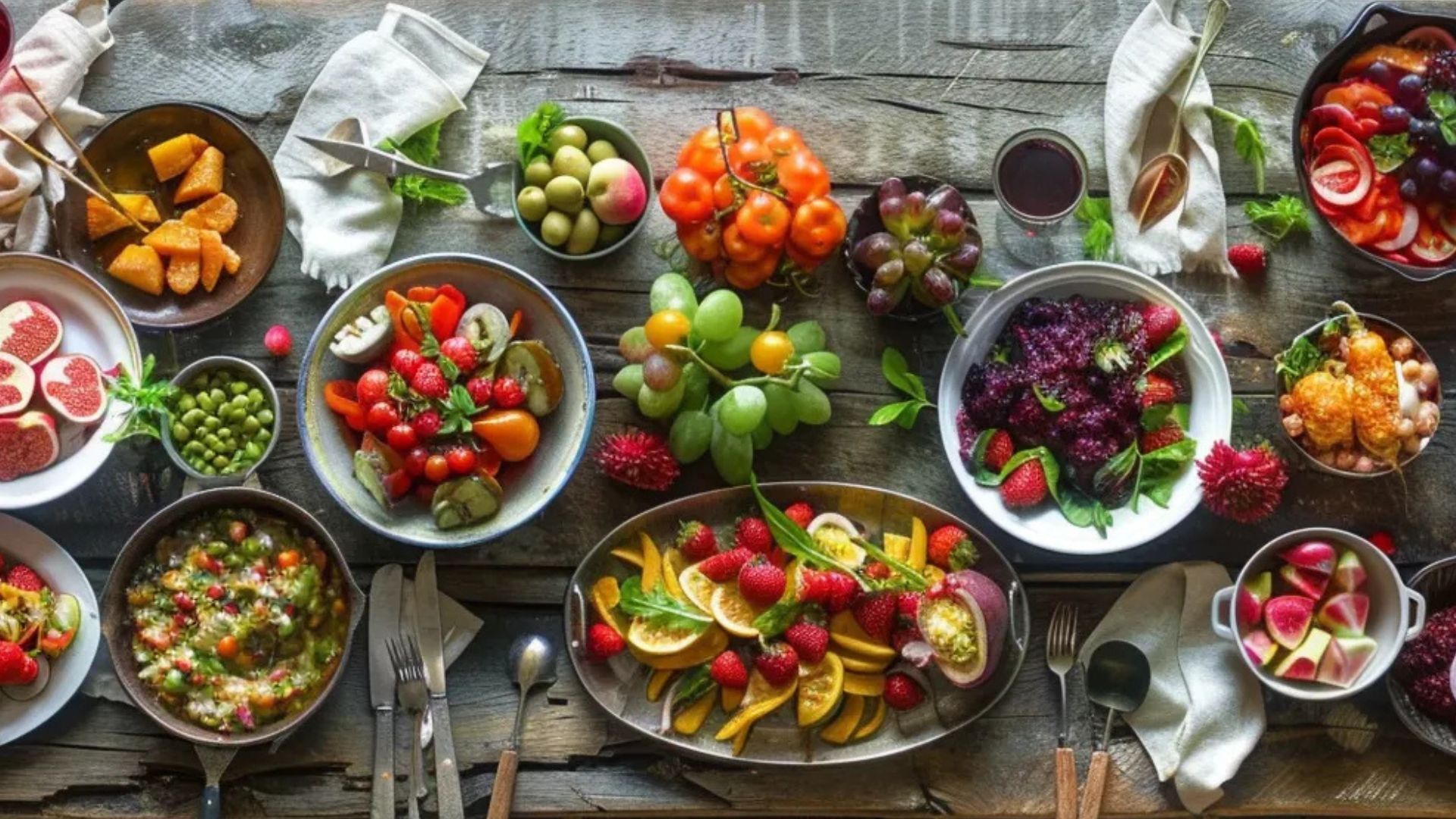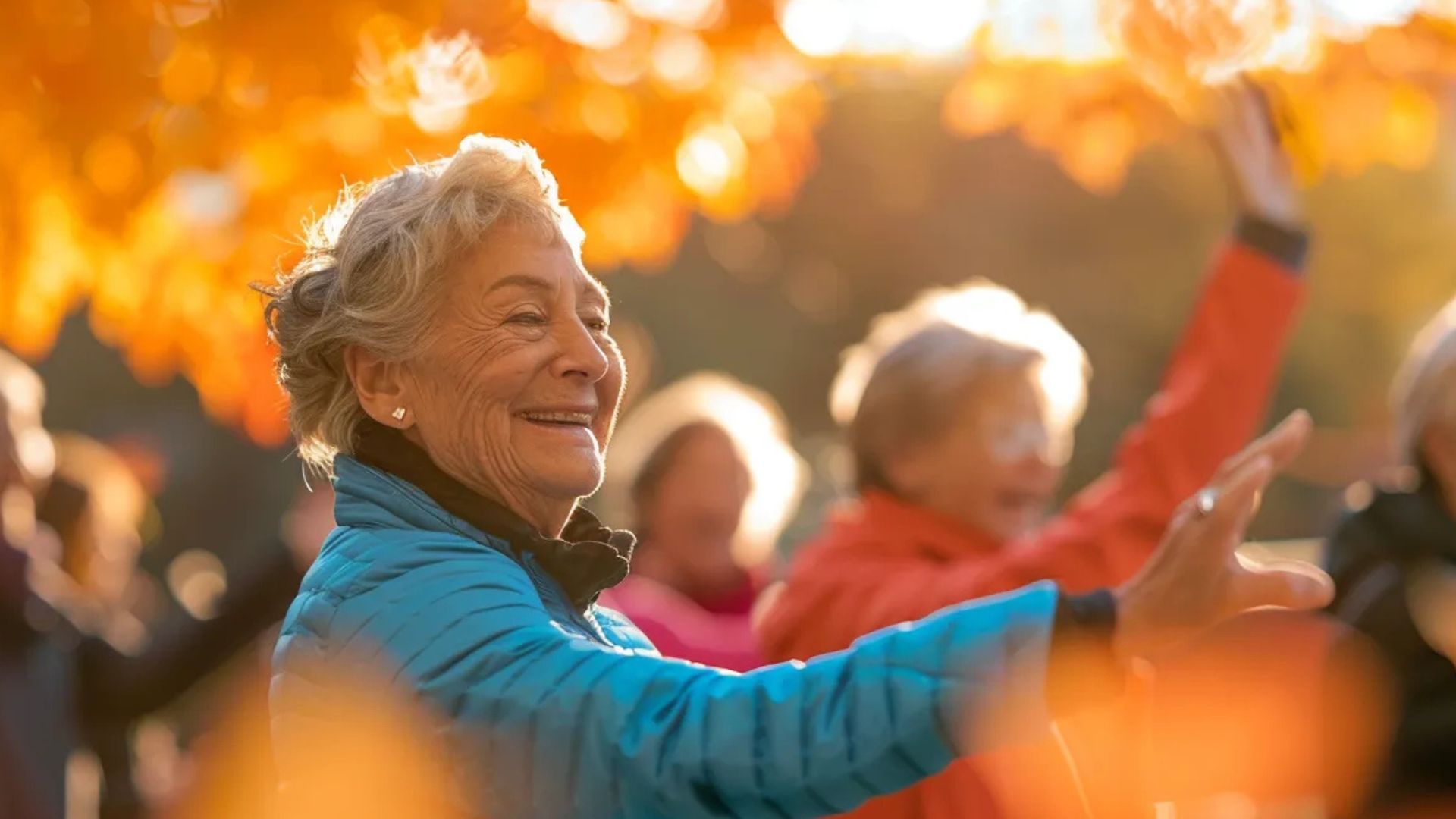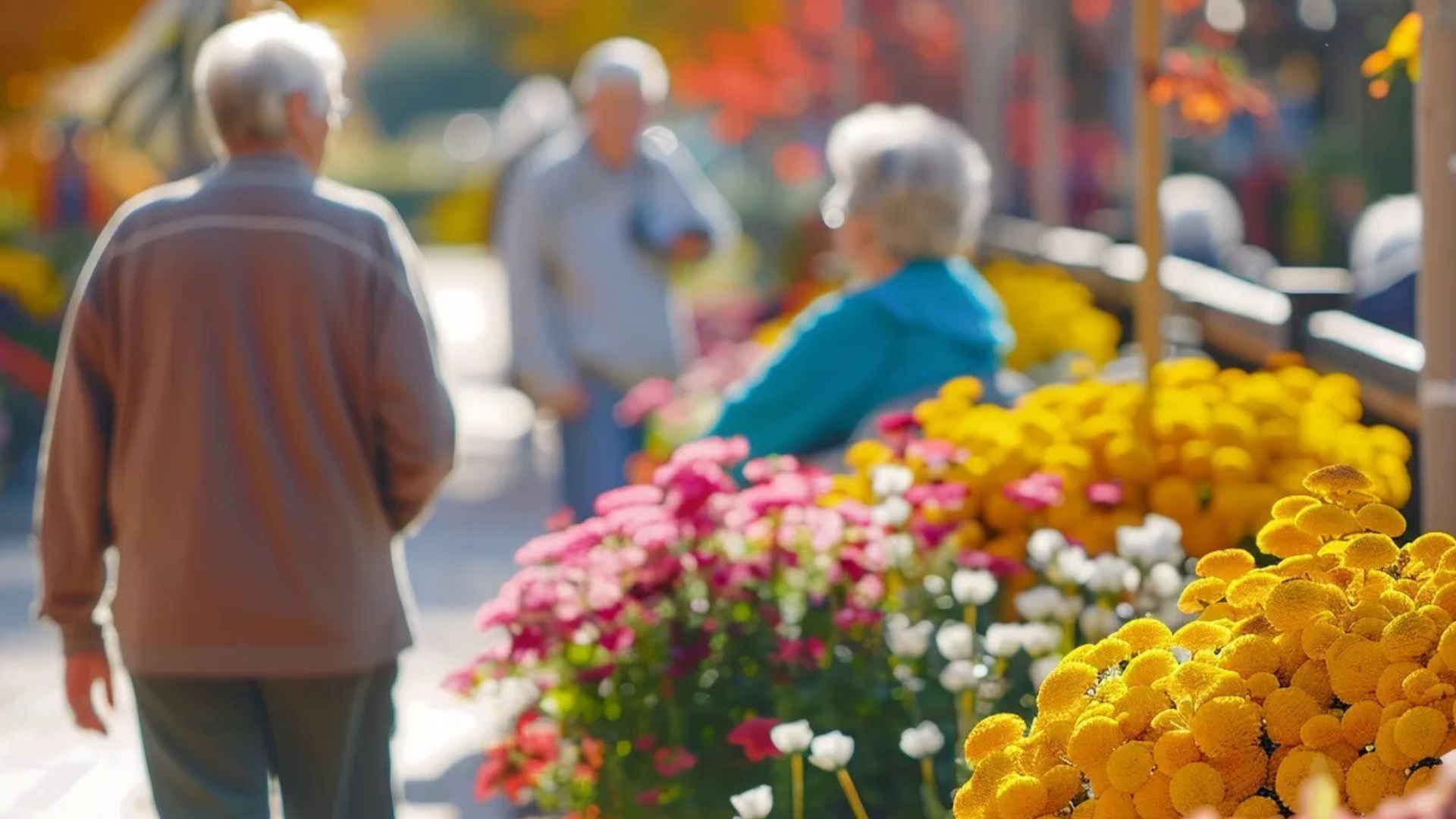Seasonal Care Tips for Seniors: Healthy Habits Year-Round
As seasons change, the health needs of seniors often require special attention. Many seniors might struggle to maintain healthy habits throughout the year, leading to issues with nutrition, activity levels, and mental well-being. This blog post will provide practical tips on focusing on nutrition, staying active with seasonally appropriate exercises, and prioritizing mental health. By following these suggestions, seniors can enjoy improved health and emotional resilience, enhancing their quality of life within their community, including resources like the Cranston Sr Center in Rhode Island. Engaging with these strategies can help prevent common seasonal health risks that many seniors face.
Key Takeaways
• Selecting seasonal produce promotes nutrition and well-being for seniors year-round
• Engaging in shared cooking experiences enhances social interaction and emotional health
• Regular hydration is essential for preventing health issues, especially during seasonal changes
• Indoor exercises and low-impact workouts help maintain seniors' physical activity safely
• Participating in community events fosters connections and combats loneliness among older adults
Focus on Nutrition for Seniors in Every Season

Choosing seasonal fruits and vegetables is essential for optimal health, especially for seniors. Adjusting meal plans based on what’s available ensures freshness while promoting hydration through varying weather conditions. Incorporating vitamin and mineral supplements can also be beneficial, alongside planning balanced meals that support energy and wellness. Encouraging shared cooking experiences not only fosters nutrition but also enhances social engagement, making these practices vital in geriatrics and care settings like nursing homes. Meals on wheels may also offer a convenient option for maintaining these healthy habits throughout the year.
Select Seasonal Fruits and Vegetables for Optimal Health
Selecting seasonal fruits and vegetables is a key component of supporting seniors' health and can significantly enhance their overall well-being. Fresh produce provides essential vitamins and minerals, aiding in the management of both physical health and activities of daily living. Preparing meals with these ingredients not only ensures nutritional value but can also inspire social activities, such as shared cooking sessions, which foster community and create an enjoyable environment for seniors.
Adjust Meal Plans Based on Seasonal Availability
Adjusting meal plans based on seasonal availability is crucial for seniors seeking optimal nutrition. By incorporating fresh fruits and vegetables available during each season, parents can enhance the health and vitality of their loved ones. Programs like the Supplemental Nutrition Assistance Program provide additional support, ensuring that seniors have access to a variety of nutritious options. Moreover, engaging in seasonal cooking can be a form of therapy, promoting both physical well-being and mental stimulation, which are essential for a fulfilling lifestyle.
Maintain Hydration Throughout the Changing Weather
Maintaining proper hydration is essential for seniors, especially as weather conditions fluctuate throughout the year. Facilities such as the Cranston Senior Center in Cranston, RI, offer programs that emphasize the importance of staying hydrated, particularly for older adults who may face challenges related to health equity and access to services. Those utilizing respite care should keep a consistent schedule for encouraging fluid intake, as Medicaid resources may help provide nutritious drinks to support overall well-being and prevent dehydration-related health issues.
Consider Vitamin and Mineral Supplements When Needed
Considering vitamin and mineral supplements can play a pivotal role in supporting seniors’ health, particularly when dietary intake may not meet their nutritional needs. For instance, utilizing resources like the Cranston Senior Center RI can provide guidance on appropriate supplements that complement the meals provided, especially for seniors with specific medication requirements. In addition, platforms like Home Instead RI can assist families in determining if supplementation is necessary, ensuring that loved ones maintain vitality and overall wellness, even during seasonal changes.
Plan Balanced Meals for Energy and Wellness
Planning balanced meals is essential for seniors in assisted living settings to maintain energy and overall wellness. Caregivers should focus on incorporating a variety of food groups, including fruits, vegetables, lean proteins, and whole grains, to ensure that nutritional needs are met. Utilizing resources such as Home Instead Senior Care RI can assist families in meal planning, aligning dietary choices with their loved ones' health care needs while considering budget constraints that may impact income.
• Select seasonal fruits and vegetables to enhance nutritional value.
• Adjust meal plans based on what is in season.
• Maintain proper hydration with adequate fluid intake.
• Consider vitamin and mineral supplements when necessary.
• Plan balanced meals that support energy and wellness.
Encourage Cooking Together for Social Engagement
Encouraging seniors to cook together fosters not only nutrition but also social interaction, which is crucial for emotional well-being. Engaging in shared cooking experiences allows them to bond and share memories, enhancing their social work aspect within care settings. Facilities in memory care RI often promote these activities as a way to stimulate cognitive function while keeping the food preparation process enjoyable and meaningful, also strengthening their ties to their primary care providers who may encourage these healthy habits.
• Engage seniors in shared cooking experiences to foster social interaction.
• Promote activities that strengthen bonds and enhance cognitive function.
• Encourage participation in meal preparation for improved nutrition.
• Ensure social work is relevant to care practices in memory care RI.
• Support primary care goals by including cooking activities in care plans.
Stay Active With Seasonally Appropriate Exercises

Adapting exercise regimens to the changing seasons ensures that seniors remain active and engaged year-round. This section discusses ways to modify outdoor activities to suit various weather conditions, incorporate indoor exercises during colder months, and select low-impact workouts for safety. It also emphasizes setting achievable fitness goals, joining local senior exercise classes for encouragement, and utilizing home exercises for convenience in elderly care management.
Adapt Outdoor Activities to Suit the Weather
Adapting outdoor activities to suit varying weather conditions is essential for maintaining seniors' physical health and overall quality of life. During warmer months, engaging in gentle exercises like walking or gardening can help combat loneliness and foster social connections. In colder seasons, home care providers may suggest indoor activities that promote movement without risking hypertension or injuries, ensuring that seniors stay active regardless of external conditions while receiving the support they need in nursing environments.
Incorporate Indoor Exercises During Cold Months
During colder months, maintaining physical activity is essential for seniors to support overall health. Incorporating indoor exercises such as chair yoga, stretching, and light resistance training can help improve flexibility and strength while reducing the risk of falls. care concierge services often recommend structured programs or at-home routines that cater to individual fitness levels, making it easier for seniors to stay active in a safe environment.
| Exercise Type | Benefits | Care Concierge Services Tips |
|---|---|---|
| Chair Yoga | Improves flexibility and relaxation | Consider guided sessions for guidance |
| Stretching | Enhances mobility and reduces tension | Set reminders for daily stretching |
| Light Resistance Training | Builds strength and supports bone health | Use bands or light weights for safety |
Choose Low-Impact Workouts for Safer Options
Choosing low-impact workouts is a safe and effective way for seniors to stay active while minimizing the risk of injury. These types of exercises, such as swimming, cycling, or yoga, provide benefits for strength, flexibility, and cardiovascular health without putting excessive strain on the body. Engaging in these activities regularly supports overall wellness and enhances the quality of life, making it easier for seniors to maintain their independence and engage with their communities.
| Exercise Type | Benefits | Tips for Safety |
|---|---|---|
| Swimming | Low-impact cardio with resistance | Choose a shallow area for safety |
| Cycling | Boosts cardiovascular health | Use stationary bikes indoors |
| Chair Yoga | Improves flexibility and relaxation | Follow guided sessions |
Set Achievable Fitness Goals With Seasonal Changes
Setting achievable fitness goals for seniors involves considering seasonal changes to maintain engagement and motivation. During warmer months, goals may include outdoor activities like walking or gardening, while winter can prompt indoor exercises such as stretching or chair yoga. Tailoring fitness objectives to the seasons helps keep seniors active and fosters a sense of accomplishment, ultimately enhancing their overall health and well-being.
Join Local Senior Exercise Classes for Motivation
Joining local senior exercise classes provides a supportive environment that motivates older adults to stay active and engaged. These classes often cater to varying fitness levels and emphasize social interaction, helping seniors build friendships while improving their physical health. Participants benefit not only from structured workouts but also from the encouragement of peers and instructors, fostering a sense of community and commitment to healthy habits.
• Provides a supportive environment for physical activity.
• Catered to varying fitness levels for inclusivity.
• Encourages social interaction and friendship-building.
• Offers structured workouts for effective exercise routines.
• Fosters community and commitment to health.
Utilize Home Exercises for Convenience
Utilizing home exercises allows seniors to maintain their fitness routines conveniently and safely. Simple activities like seated leg lifts, stretching, or even using resistance bands can be easily incorporated into daily life, promoting physical health without the need for extensive equipment. Caregivers can assist by creating structured schedules that include these exercises, making it easier for seniors to remain active directly from their living spaces.
| Exercise Type | Benefits | Tips for Implementation |
|---|---|---|
| Seated Leg Lifts | Improves leg strength | Perform while watching television |
| Stretching | Enhances flexibility | Incorporate into morning routines |
| Resistance Bands | Builds muscle without heavy weights | Use with guidance from caregivers |
Prioritize Mental Well-Being Across the Seasons

Engaging in seasonal hobbies can stimulate creativity for seniors, while fostering connections with friends and family is essential for emotional support. Exploring mindfulness practices tailored for each season, taking relaxing walks in nature, volunteering for community activities, and challenging the mind with seasonal puzzles and games contribute significantly to mental well-being. Each of these activities enriches life, promoting a fulfilling and active lifestyle.
Engage in Seasonal Hobbies to Stimulate Creativity
Engaging in seasonal hobbies offers seniors a wonderful opportunity to stimulate creativity while enhancing mental well-being. Activities such as crafting, gardening, or even cooking seasonal recipes can provide not only enjoyment but also a sense of accomplishment. These hobbies encourage social interaction and connection with others, addressing feelings of loneliness and fostering a vibrant community atmosphere.
• Seasonal hobbies can enhance creativity and mental stimulation.
• Crafting and gardening promote engagement with the environment.
• Cooking seasonal recipes encourages social interaction and shared experiences.
• Participating in these activities can also help reduce feelings of loneliness.
• Developing seasonal interests nourishes both mind and spirit throughout the year.
Foster Connections With Friends and Family Regularly
Fostering connections with friends and family is vital for seniors' mental well-being, as regular interactions provide emotional support and reduce feelings of loneliness. Maintaining a routine that includes scheduled phone calls, video chats, or family visits can make a noticeable difference in their quality of life. Engaging in group activities, such as game nights or shared meals, not only strengthens these bonds but also promotes a sense of community and belonging.
| Connection Activity | Benefits | Tips for Engagement |
|---|---|---|
| Phone Calls | Reduces feelings of isolation | Schedule regular times each week |
| Video Chats | Enhances visual connection | Use easy-to-navigate platforms |
| Family Visits | Strengthens emotional support | Plan fun activities for bonding |
Explore Mindfulness Practices Suited for Each Season
Mindfulness practices can significantly enhance mental well-being for seniors across all seasons. During spring, engaging in activities like mindful gardening or nature walks can cultivate a sense of peace while promoting physical activity. In summer, practicing gratitude journaling at the beach or attending community events provides opportunities for social interaction and reflection. As autumn approaches, seniors might benefit from indoor mindfulness exercises such as meditation or deep breathing techniques near a cozy fire, while winter can encourage mindful moments by enjoying warm beverages and reminiscing with family during the holidays. These seasonal mindfulness practices not only nurture emotional health but also foster a connection to the environment and loved ones, contributing to a fulfilling life year-round.
Take Walks in Nature for Relaxation and Clarity
Taking walks in nature provides seniors a valuable opportunity for relaxation and mental clarity. The tranquility of outdoor environments can significantly enhance emotional well-being, reducing feelings of stress and anxiety while promoting a sense of connection to the world. Engaging in regular walking routines not only supports physical health but also encourages mindfulness, helping seniors to reflect and experience peace in their daily lives.
Volunteer for Seasonal Community Activities
Volunteering for seasonal community activities offers seniors a fulfilling way to enhance their mental well-being while contributing positively to their surroundings. Participating in events such as holiday food drives, community clean-ups, or local festivals not only fosters social connections but also brings a sense of purpose and accomplishment. By engaging in these activities, seniors can experience increased feelings of joy and belonging, addressing their emotional health needs effectively:
• Promotes social interaction and community engagement.
• Provides a sense of purpose and accomplishment.
• Enhances emotional health through meaningful involvement.
• Allows for creative expression during seasonal festivities.
• Encourages a positive outlook and reduces feelings of isolation.
Challenge the Mind With Seasonal Puzzles and Games
Challenging the mind with seasonal puzzles and games can significantly contribute to seniors' mental well-being throughout the year. Engaging in activities like crossword puzzles, Sudoku, or themed games related to holidays not only provides enjoyment but also encourages cognitive stimulation. Regularly incorporating these activities into a senior's routine can enhance memory, improve problem-solving skills, and foster social connections during group game sessions.
| Activity Type | Benefits | Seasonal Examples |
|---|---|---|
| Puzzles | Enhances cognitive function | Crossword puzzles in winter |
| Board Games | Encourages social interaction | Holiday-themed games in fall |
| Card Games | Improves memory and focus | Springtime bridge tournaments |
Safeguard Against Seasonal Health Risks

Staying informed about flu shots and vaccinations is vital for seniors, especially during peak seasons. Modifying home safety for winter conditions prevents accidents, while managing allergies during spring helps maintain comfort. Addressing hydration needs during summer heat is essential, and recognizing signs of seasonal depression ensures emotional well-being. Preparing for extreme weather events aids in safety and readiness throughout the year.
Stay Informed About Flu Shots and Vaccinations
Staying informed about flu shots and vaccinations is a fundamental aspect of health management for seniors, especially during peak flu seasons. Regularly consulting with healthcare providers can help seniors understand the importance of these vaccinations in preventing illness and maintaining overall wellness. Additionally, awareness of local vaccination clinics and community health programs can aid families in ensuring their loved ones receive timely immunizations, thus safeguarding them against potential health risks associated with seasonal changes.
Modify Home Safety for Winter Conditions
Modifying home safety for winter is essential for seniors to prevent accidents and injuries. Ensuring that walkways are clear of snow and ice, using non-slip mats inside the home, and keeping commonly used areas well-lit can significantly reduce fall risks. Furthermore, seniors should have easy access to emergency contacts and necessary supplies, allowing for a safer environment that promotes independence and confidence during the colder months.
Manage Allergies During Springtime Changes
Managing allergies during springtime changes is essential for seniors, as increased pollen and allergens can trigger uncomfortable symptoms. It is advisable for seniors to monitor local allergy forecasts and limit outdoor activities on high pollen days. Implementing practical strategies, such as keeping windows closed, using air purifiers, and regularly cleaning indoor spaces, can significantly reduce exposure to allergens and promote a more comfortable living environment.
Address Hydration Needs During Summer Heat
Addressing hydration needs during summer heat is crucial for seniors to prevent dehydration, which can lead to serious health complications. Older adults often have a diminished sense of thirst, making it essential for caregivers to encourage regular fluid intake throughout the day. Simple strategies include providing easy access to water, offering hydrating foods like cucumbers and watermelon, and setting reminders for seniors to drink regularly, ensuring they stay cool, hydrated, and healthy during the warmer months:
• Encourage regular fluid intake to combat dehydration.
• Provide hydrating foods such as cucumber and watermelon.
• Set reminders for seniors to drink throughout the day.
• Ensure easy access to water in common areas.
• Monitor hydration levels, particularly during heatwaves.
Recognize Signs of Seasonal Depression
Recognizing the signs of seasonal depression is crucial for seniors and their caregivers. Symptoms may include persistent feelings of sadness, withdrawal from social activities, changes in sleep patterns, or a lack of interest in hobbies that were once enjoyable. By being attentive to these changes in behavior, families can encourage open conversations and seek professional support to address emotional health, ensuring seniors maintain a sense of connection and well-being throughout the seasons.
Prepare for Extreme Weather Events
Preparing for extreme weather events is essential for seniors to ensure their safety and well-being. It is advisable to have an emergency plan that includes access to necessities such as medication, food, and water, while also keeping a supply of flashlights, batteries, and charged mobile devices within reach. By proactively addressing potential risks associated with severe weather, caregivers can help create a secure environment that minimizes disruption and promotes peace of mind for elderly individuals.
Make Seasonal Clothing Choices for Comfort

Layering clothing allows seniors to adapt to fluctuating temperatures, ensuring comfort throughout the year. Selecting breathable yet warm fabrics, investing in sturdy footwear for seasonal conditions, and accessorizing appropriately for winter safety are key considerations. Organizing seasonal wardrobe swaps can introduce variety, while ongoing sun protection in summer is vital for skin health. These practical choices support seniors' well-being in every season.
Layer Clothing to Adapt to Temperature Changes
Layering clothing is an effective strategy for seniors to adapt to fluctuating temperatures, ensuring comfort throughout the year. By wearing multiple layers, seniors can easily adjust to changes in their environment, staying warm when it's cold and cool when temperatures rise. This approach allows for quick modifications as needed and helps prevent overheating or excessive chill, addressing a common concern among older adults.
| Layer Type | Purpose | Example Items |
|---|---|---|
| Base Layer | Provides warmth and comfort | Thermal shirts, lightweight leggings |
| Middle Layer | Adds insulation | Sweaters, fleece jackets |
| Outer Layer | Offers protection from elements | Weather-resistant coats, windbreakers |
Select Fabrics That Offer Breathability and Warmth
Selecting fabrics that offer both breathability and warmth is crucial for seniors as they navigate seasonal changes. Natural fibers such as cotton and wool provide insulation while allowing air circulation, which helps regulate body temperature. Choosing the right materials is essential for comfort, ensuring seniors remain cozy during colder months without overheating indoors.
Invest in Sturdy Footwear for Seasonal Conditions
Investing in sturdy footwear is crucial for seniors as they navigate various seasonal conditions. During winter, appropriate shoes with good traction can prevent slips on icy surfaces, while breathable sandals during summer maintain comfort and avoid overheating. Selecting footwear that combines support and stability not only enhances mobility but also significantly reduces the risk of falls, a common concern for older adults:
| Season | Footwear Type | Key Benefits |
|---|---|---|
| Winter | Non-slip boots | Prevents falls on ice and snow |
| Summer | Breathable sandals | Keeps feet cool and reduces discomfort |
| Spring/Fall | Supportive sneakers | Offers stability for varied terrain |
Accessorize for Safety and Warmth in Winter
Accessorizing during winter is vital for seniors to ensure safety and warmth. Utilizing hats that cover the ears, scarves to protect the neck, and insulated gloves can significantly reduce the risk of hypothermia and frostbite. Seniors should also consider wearing non-slip footwear and traction aids to enhance stability on icy surfaces, allowing them to navigate their environment confidently and safely throughout the colder months.
Organize a Seasonal Wardrobe Swap for Variety
Organizing a seasonal wardrobe swap can provide seniors with an enjoyable way to refresh their clothing options while fostering community connections. By inviting friends, family, or neighbors to exchange gently used seasonal items, seniors can benefit from having a variety of clothing without the financial burden of constant purchases. This collaborative approach encourages socialization and can significantly enhance emotional well-being, making it easier for seniors to adapt their wardrobes to fluctuating temperatures and ensure they remain comfortable throughout the year.
Highlight the Importance of Sun Protection in Summer
During the summer months, protecting the skin from harmful UV rays is essential for seniors to maintain their health and well-being. Wearing protective clothing, such as long sleeves and wide-brimmed hats, along with applying broad-spectrum sunscreen, can help prevent sunburn and reduce the risk of skin cancer. Seniors should remain mindful of their sun exposure, particularly during peak hours, ensuring they stay safe while enjoying outdoor activities:
• Use broad-spectrum sunscreen with an SPF of 30 or higher.
• Wear lightweight, long-sleeved clothing to shield skin.
• Choose hats with at least a 3-inch brim for maximum protection.
• Seek shade during peak sun hours, usually between 10 a.m. and 4 p.m.
• Stay hydrated to help the skin maintain its health and resilience.
Cultivate a Seasonal Routine for Consistency

Establishing a seasonal routine is vital for seniors to maintain consistency in their daily lives. Implementing a regular sleep schedule, planning seasonal activities, and including relaxation time can enhance overall well-being. Scheduling regular health check-ups, encouraging participation in community events, and tracking progress will help seniors appreciate their seasonal achievements. Each of these strategies contributes to a healthier, more fulfilling lifestyle year-round.
Establish a Regular Sleep Schedule Year-Round
Establishing a regular sleep schedule year-round is vital for seniors to enhance their overall health and well-being. By going to bed and waking up at the same times each day, older adults can regulate their body clocks, leading to improved sleep quality and reduced daytime fatigue. Care providers and family members should encourage their loved ones to create a relaxing bedtime routine, such as gentle stretching or reading, which can promote a smoother transition to sleep and foster a sense of consistency that benefits their daily activities.
Plan Seasonal Activities to Create Structure
Planning seasonal activities is an effective way for seniors to create structure in their daily lives, enhance engagement, and foster a sense of community. For example, organizing potlucks in the fall or gardening sessions in the spring not only promotes social interaction but also encourages participation in enjoyable, health-focused experiences. By incorporating seasonal themes into activities, caregivers can help seniors stay motivated and connected, making each season an opportunity for meaningful engagement and overall well-being.
Include Relaxation Time in Your Daily Routine
Including relaxation time in a senior's daily routine is essential for promoting mental well-being and overall health. Setting aside moments for quiet activities, such as reading, listening to music, or practicing gentle breathing techniques, allows seniors to de-stress and recharge, ultimately enhancing their quality of life. Caregivers can facilitate this by creating a calm environment that encourages these restful activities, ensuring seniors experience the benefits of relaxation throughout the year.
Schedule Regular Health Check-Ups With Providers
Scheduling regular health check-ups with providers is fundamental for seniors to monitor their overall health and manage any chronic conditions effectively. These appointments allow healthcare professionals to identify potential issues early, ensuring timely interventions that can improve quality of life. Families should work together with seniors to create a health check-up calendar, making it easier to track visits and encourage adherence to preventive care guidelines:
• Create a health check-up calendar for easy tracking.
• Ensure timely interventions by scheduling regular appointments.
• Encourage communication with healthcare providers about health concerns.
• Utilize check-ups to manage chronic conditions effectively.
Encourage Participation in Seasonal Community Events
Encouraging participation in seasonal community events is an effective way for seniors to enhance their social engagement, combat loneliness, and maintain a vibrant lifestyle. Activities such as holiday parties, gardening clubs, or local festivals provide opportunities for older adults to connect with peers, share experiences, and build friendships. By involving seniors in these events, caregivers can foster a sense of belonging and purpose, crucial for their emotional well-being and overall quality of life.
Track Progress to Appreciate Seasonal Achievements
Tracking progress in seasonal activities is essential for seniors to recognize their achievements and stay motivated. By documenting improvements in health, social connections, and engagement in hobbies, older adults can gain a clearer view of their overall well-being throughout the year. For instance, keeping a simple journal or calendar can reveal patterns and milestones, helping to inspire continued participation in seasonal events and routines that enhance their quality of life.
Conclusion
Implementing seasonal care tips is vital for seniors to maintain their health and well-being throughout the year. Prioritizing nutrition, hydration, and exercise adjusted to seasonal changes fosters both physical and mental vitality. Engaging in community activities and shared cooking experiences enhances social connections, combatting loneliness. Sustaining healthy habits year-round not only improves quality of life but also empowers seniors to thrive in every season.


